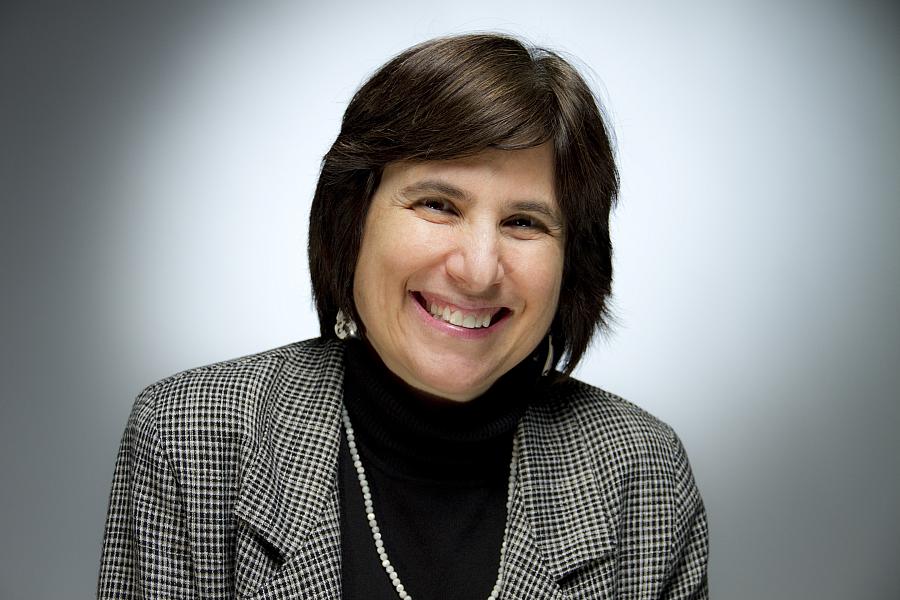Remembering Peggy Girshman, a visionary leader in health journalism

Peggy Girshman, a visionary journalist beloved by many and a longtime friend of our center, died Monday.
“Peg went out like a true journalist, at her desk, writing (while also playing Scrabble online with her arch-nemesis, my brother Dan),” her husband, Mitchell Berger, wrote in a tender Facebook post. “Let the record show that she was winning.”
For many years, Peggy knew that her health was fragile. She contended with a rare disease, amyloidosis, which impaired her heart function. Still, her death was sudden and unexpected.
“Peg was to go to Kaiser Health News, the health policy news service that she was instrumental in establishing,” her husband wrote. “She was going to welcome the latest recruits to the KHN health policy boot camp, which is a joint venture with NPR - the other great journalism love of her life. Almost every story you hear about health care policy on NPR is there because of Peg's efforts. It was because I thought Peg was napping and would be late, that I went to check on her.”
Her husband found her slumped over on her desk, and he and paramedics could not revive her.
Peggy was one of the founders of Kaiser Health News, which delivers incisive health policy coverage written by some of the best health reporters in the country. As executive editor, she recruited many on that team, launched KHN’s partnership with NPR and helped KHN become a national force, which now sees its stories published in major outlets nationwide.
An award-winning journalist, Peggy got her start in commercial television stations in Washington DC, WNET-TV, and as the senior producer for several PBS series, including Scientific American Frontiers. She worked for NPR New for 15 years, in science/health, domestic news and eventually becoming a managing editor responsible for marrying the radio and digital sides. She was senior medical producer at Dateline NBC and an executive editor of CQ Politics. Most recently, she launched Kaiser Health News’ California bureau.
For the last eight years, Peggy has served as a judge for our Center’s Dennis A. Hunt Fund for Health Journalism. It was a volunteer gig and a challenging one, as we receive as many as 80 applications for five or so awards of $2,500 to $10,000 to journalists doing major reporting projects on underserved communities.
Peggy served as the conscience of our group of judges when it came to ensuring that journalism project proposals had the necessary scientific rigor and sound reasoning to back up journalistic assumptions. She did this not as a scold, but with humor and brightness and vibrancy. She was a ferocious defender of an unlikely cause – understanding statistical significance -- and so it didn’t surprise me to learn that she once convinced PBS to run a 26-part series on statistics. I can still remember her saying – only half jokingly – “this is one proposal that I will throw myself on the railroad tracks to oppose,” but then urging us to inform the applicant how to improve the concept to reapply the following year.
Peggy was funny. The person you would want to have a beer with, who had a knowing wink about the exasperating aspects of producing news. But she also had the foresight to overcome the obstacles and the kind of optimism that never seemed to wane, even when she had to retire two years ago due to her illness. It was, she once told me, a way for her to have time to do more of the extra projects she could never do when working full-time.
It’s fitting then that Peggy was on her way to another volunteer project on her last day with us.

